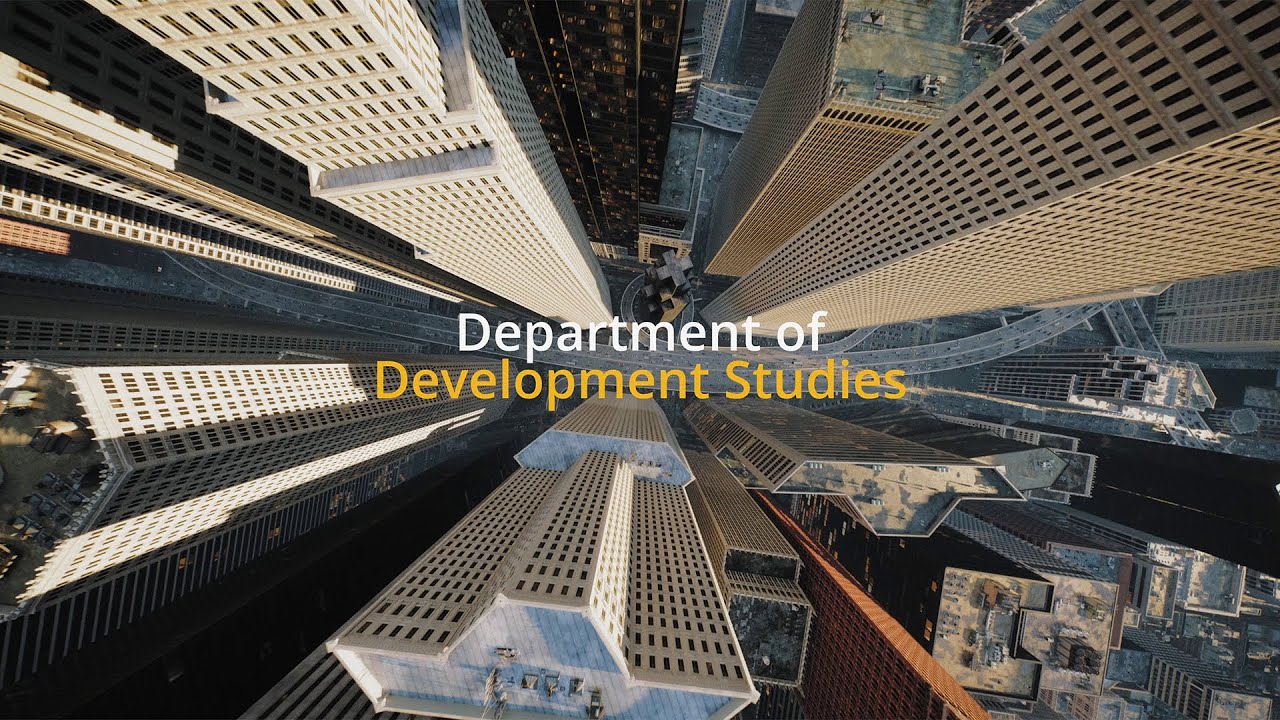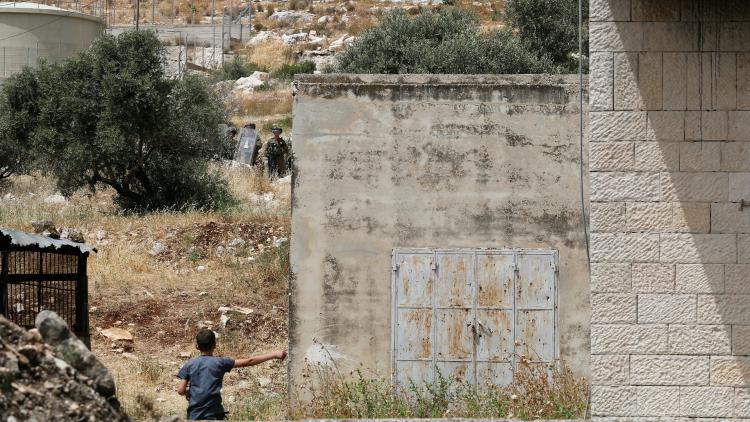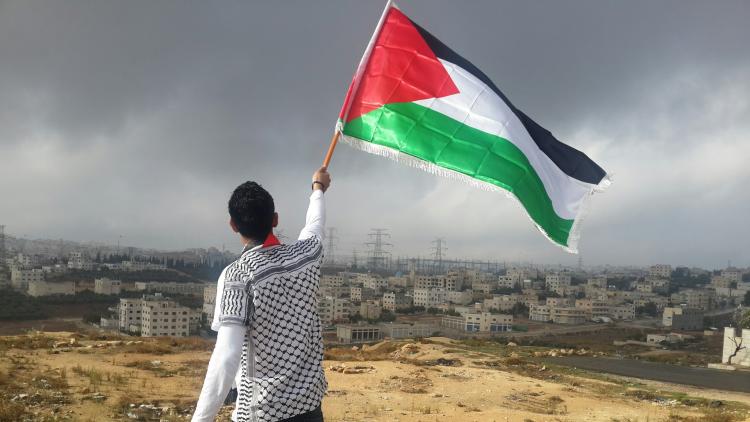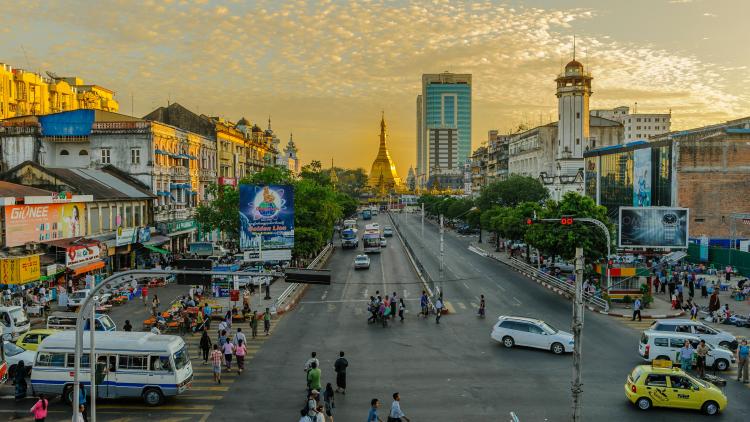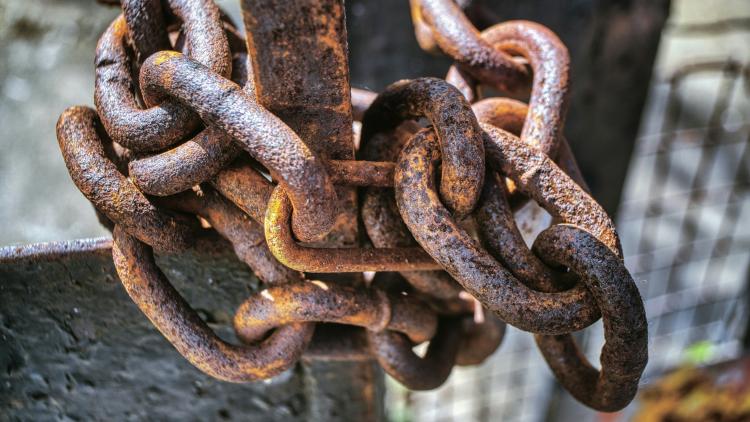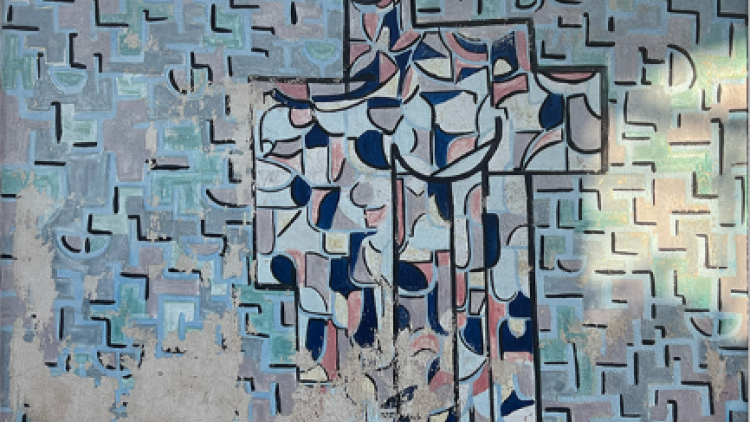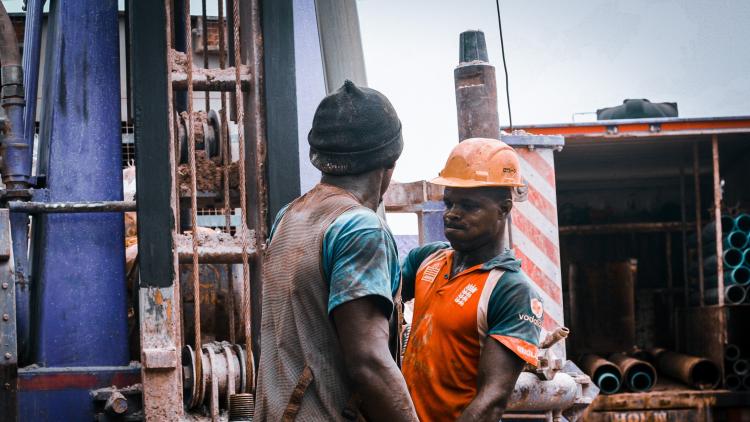MSc Humanitarianism, Aid & Conflict
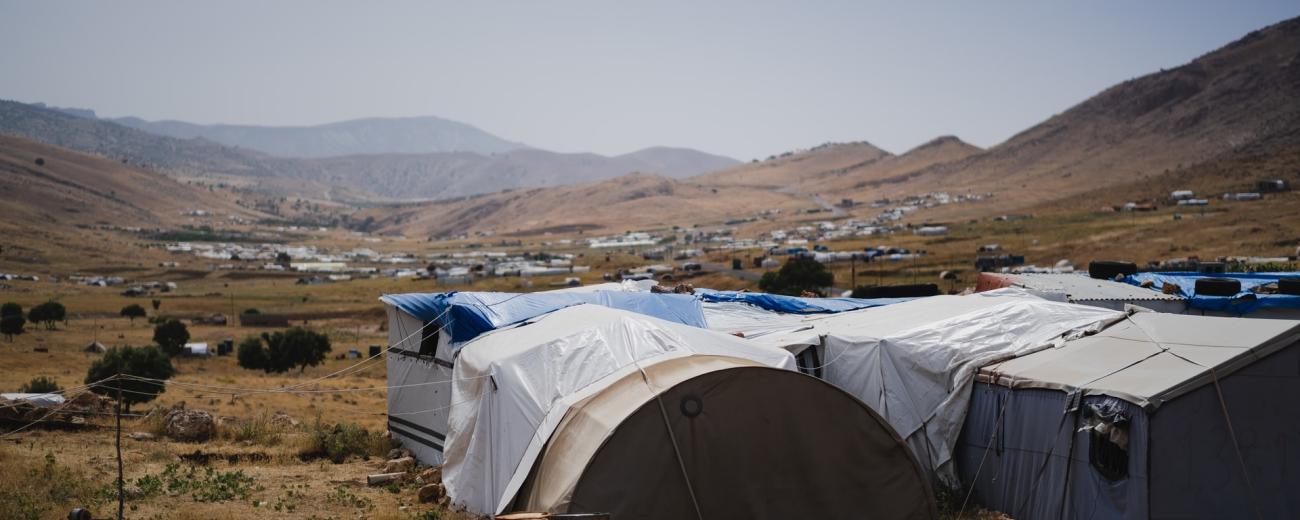

Key information
- Duration
- 1 year
- Start of programme
- September
- Attendance mode
- Full time or part time
- Location
- On Campus
- Fees
-
Home: £12,965
International: £25,320 - Course code
- PSO-HUMAID1FD
- Entry requirements
-
We will consider all applications with 2:2 (or international equivalent) or higher.
-
Afghanistan: Qualifications (Bachelor equivalency): Master's degree from a recognised institution
Equivalent to 2:ii: 70% or 3.0
-
Albania: Qualifications (Bachelor equivalency): First Level Diploma (Diploma e nivelit te para) (3 Years) from a recognised institution
Equivalent to 2:ii: 7/10
-
Algeria: Qualifications (Bachelor equivalency): Licence; Diplome de [subject area]; Diplome d'Etudes Superieures; Diplome de Docteur end Pharmacie; or Diplome de Docteur en Medecine from a recognised institution
Equivalent to 2:ii: 12/20
-
Antigua and Barbuda: Qualifications (Bachelor equivalency): Bachelor's degree from the University of the West Indies
Equivalent to 2:ii: 2.7/4, B-, 60% or Lower Second Class Hons
-
Argentina: Qualifications (Bachelor equivalency): Titulo/ Grado de Licenciado/ Titulo de [subject area] (minimum 4 years) from a recognised institution
Equivalent to 2:ii: 6/10 or Bueno
-
Australia: Qualifications (Bachelor equivalency): Bachelor's degree from a recognised institution
Equivalent to 2:ii: 2:2 / Credit / 60%
-
Austria: Qualifications (Bachelor equivalency): Bachelor's degree from a recognised institution
Equivalent to 2:ii: 3.5/5.0 and overall Pass (Bestanden)
-
Azerbaijan: Qualifications (Bachelor equivalency): Bachelor's degree (Bakalavr Diplomu) from recognised institution
Equivalent to 2:ii: 70% or 3.5
-
Bahamas: Qualifications (Bachelor equivalency): Bachelor's degree from the University of the West Indies
Equivalent to 2:ii: 2.7/4, B-, 60% or Lower Second Class Hons
-
Bahrain: Qualifications (Bachelor equivalency): Bachelor's degree from a recognised institution
Equivalent to 2:ii: 74% or 2.67
-
Bangladesh: Qualifications (Bachelor equivalency): Master's degree from a recognised institution OR 4 Year Bachelor's degree from SELECTED institutions
Equivalent to 2:ii: Masters: 55% or 2.7. Bachelor: 60% or 3.0
-
Belgium: Qualifications (Bachelor equivalency): Licentiaat (Flanders) or Licencié (Wallonia). Post 2005 Bachelor/Bachelier 180 ECT degree from a recognised institution
Equivalent to 2:ii: 60% or 12/20 (Flanders); or 65% (Wallonia). Bachelor: 60% or 12/20
-
Bolivia: Qualifications (Bachelor equivalency): Licenciado or Título de [subject area] from a recognised institution. Minimum of 4 year
Equivalent to 2:ii: 67%
-
Botswana: Qualifications (Bachelor equivalency): Bachelor's degree (minimum 5 years) or Master Degree from the University of Botswana
Equivalent to 2:ii: C / 60% / 2:2
-
Brazil: Qualifications (Bachelor equivalency): Título de Bacharel / Título de [subject area] / Título de Licenciado/a (4 years) from a recognised institution
Equivalent to 2:ii: 6.5 or 65%
-
Brunei: Qualifications (Bachelor equivalency): Bachelor's degree (Honours) from recognised institution
Equivalent to 2:ii: Lower Second Class Hons; 50% / 3.5 out of 5.0
-
Bulgaria: Qualifications (Bachelor equivalency): Bachelor's degree from a recognised institution
Equivalent to 2:ii: 4.0/6.0
-
Burkina Faso: Qualifications (Bachelor equivalency): Diplome d'Etudes Approfondies. Diplome d'Etudes Superieures Specialisees
Equivalent to 2:ii: 13/20
-
Burma / Myanmar: Qualifications (Bachelor equivalency): Master's degree from a recognised institution
Equivalent to 2:ii: B- or 55% or 3.0/5.0 or 2.5/4.0
-
Cambodia: Qualifications (Bachelor equivalency): Master's degree from recognised institution
Equivalent to 2:ii: 65% or 2.7/4.0
-
Cameroon: Qualifications (Bachelor equivalency): Diplôme d'Ingénieur/ Diplôme d'Études Supérieures de Commerce (5 years) from a recognised institution
Equivalent to 2:ii: 12 (assez bien) or 2.5. 70-74/ B+
-
Canada: Qualifications (Bachelor equivalency): Bachelor's degree from a recognised institution
Equivalent to 2:ii: 2.7 or 67%
-
Chile: Qualifications (Bachelor equivalency): Grado de Licenciado en [subject area] or Titulo (Professional) de [subject area] (min 4 years) from recognised institution
Equivalent to 2:ii: 5.0/7
-
China Qualifications (Bachelor equivalency): Bachelor's degree (4 years) 学士学位 from a recognised institution
Equivalent to 2:ii: 70-75% or 2.5-2.9/4.0 (depending on university)
-
Colombia: Qualifications (Bachelor equivalency): Licenciado en [subject area] or Titulo de [subject area] (minimum 4 years) from recognised institution
Equivalent to 2:ii: 3.5/5.0
-
Croatia: Qualifications (Bachelor equivalency): Baccalaureus / Baccalaurea (Bachelor's degree) from a recognised institution
Equivalent to 2:ii: 3.0/5.0
-
Cuba: Qualifications (Bachelor equivalency): Titulo de Licenciado/ Arquitecto/ Doctor/ Ingeniero from a recognised institution
Equivalent to 2:ii: 3.5/5.0
-
Cyprus: Qualifications (Bachelor equivalency): Bachelor's degree from a recognised institution
Equivalent to 2:ii: 6.0/10 or 2.7/4.0
-
Czech Republic: Qualifications (Bachelor equivalency): Bachelor's degree (180 ECTS) from a recognised institution
Equivalent to 2:ii: 2.0/4.0
Information for prospective students from the Czech Republic
-
Denmark: Qualifications (Bachelor equivalency): Bachelor's degree from a recognised institution
Equivalent to 2:ii: 5/12 or 6/13
-
Dominica: Qualifications (Bachelor equivalency): Bachelor's degree from the University of the West Indies
Equivalent to 2:ii: 2.7/4, B-, 60% or Lower Second Class Hons
-
Dominican Republic: Qualifications (Bachelor equivalency): Título de Licenciado/Título de [subject] upon completion of 4-year Licenciatura
Equivalent to 2:ii: 65% or 6.5/10
-
Ecuador: Qualifications (Bachelor equivalency): Bachelor's degree from recognised university
Equivalent to 2:ii: 70% / 7
-
Egypt: Qualifications (Bachelor equivalency): Bachelor's degree from recognised university
Equivalent to 2:ii: 65% or 2.7/4.0
-
Estonia: Qualifications (Bachelor equivalency): Bakalaurusekraad from a recognised institution; University Specialist's Diploma; Professional Higher Education Diploma
Equivalent to 2:ii: 3.0/5.0 or C
-
Ethiopia: Qualifications (Bachelor equivalency): Master's degree from recognised public or HERQA-accredited private institution
Equivalent to 2:ii: 2.5/5.0
-
Fiji: Qualifications (Bachelor equivalency): Bachelor's degree (4 years) from the University of the South Pacific
Equivalent to 2:ii: B/3.0
-
Finland: Qualifications (Bachelor equivalency): Bachelor/Kandidaatti/Kandidat (180 ECTS credits) from a recognised institution
Equivalent to 2:ii: 2.5/4.0 or 1.4/3.0
-
France: Qualifications (Bachelor equivalency): Grade de Licence from a recognised institution OR three years of study from a grande école
Equivalent to 2:ii: 11/20
-
Gambia: Qualifications (Bachelor equivalency): 2-year Master's degree from recognised university
Equivalent to 2:ii: 2.7/4.3 or 60%
-
Georgia: Qualifications (Bachelor equivalency): Bachelor's degree (Bakalavris Khariskhi) from a recognised institution
Equivalent to 2:ii: 71%/C/ Good
-
Germany: Qualifications (Bachelor equivalency): Bachelor's degree (180 ECTS) from a recognised institution
Equivalent to 2:ii: Befriedigend: 2.6-3.5/5.0
-
Ghana: Qualifications (Bachelor equivalency): Bachelor's degree from a recognised institution
Equivalent to 2:ii: Lower Second Class Hons
-
Greece: Qualifications (Bachelor equivalency): Bachelor's degree from a recognised institution
Equivalent to 2:ii: 6/10 (University) or 6.8/10 (Tech Institutes)
-
Grenada: Qualifications (Bachelor equivalency): Bachelor's degree from the University of the West Indies
Equivalent to 2:ii: 2.7/4, B-, 60% or Lower Second Class Hons
-
Haiti: Qualifications (Bachelor equivalency): Bachelor's degree from the University of the West Indies
Equivalent to 2:ii: 2.7/4, B-, 60% or Lower Second Class Hons
-
Hong Kong: Qualifications (Bachelor equivalency): Bachelor's degree from a recognised institution
Equivalent to 2:ii: 2.5/4.0 or Lower Second Class Honours
-
Hungary: Qualifications (Bachelor equivalency): Bachelor's degree (Alapfokozat) or Diploma (Egyetemi Oklevél) from a recognised institution
Equivalent to 2:ii: 3.5/5.0
-
Iceland: Qualifications (Bachelor equivalency): Bachelor's degree (Baccalaureus or Bakkalarprof) from a recognised institution
Equivalent to 2:ii: 6.5 out of 10
-
India: Qualifications (Bachelor equivalency): Bachelor's degree (3 or 4 years) from a recognised institution
Equivalent to 2:ii: Top unis: 55%, or 5.5/10. All other: 60%, or 6.0/10; or 5.0/8.0
-
Indonesia: Qualifications (Bachelor equivalency): Bachelor's degree or Sarjana I (S1) from a recognised institution
Equivalent to 2:ii: 2.7/4.0
-
Iran: Qualifications (Bachelor equivalency): Licence/ Karshenasi (4-year Bachelor) from a recognised institution
Equivalent to 2:ii: 13/20
-
Iraq: Qualifications (Bachelor equivalency): Bachelor's degree (4-year) from a recognised institution
Equivalent to 2:ii: 65% or Good
-
Ireland: Qualifications (Bachelor equivalency): Bachelor's degree from a recognised institution
Equivalent to 2:ii: Second Class Honours Grade II
-
Israel: Qualifications (Bachelor equivalency): Bachelor's degree from a recognised institution
Equivalent to 2:ii: 65%
-
Italy: Qualifications (Bachelor equivalency): Laurea (180 ECTS) from a recognised institution
Equivalent to 2:ii: 94/110
-
Jamaica: Qualifications (Bachelor equivalency): Bachelor's degree from the University of the West Indies
Equivalent to 2:ii: 2.7/4, B-, 60% or Lower Second Class Hons
-
Japan: Qualifications (Bachelor equivalency): 学士 (Bachelor's degree) from a recognised institution
Equivalent to 2:ii: 70-75% / Good/ B or 2.7/ 4.0
-
Jordan: Qualifications (Bachelor equivalency): Bachelor's degree from recognised institution
Equivalent to 2:ii: 2.5/4.0 or 70%
-
Kazakhstan: Qualifications (Bachelor equivalency): Bachelor's (Bakalavr Diplomi) or Specialist Diploma from recognised institution
Equivalent to 2:ii: 2.67/4.0 or 3.5/5.0
-
Kenya: Qualifications (Bachelor equivalency): Bachelor's degree from a recognised institution
Equivalent to 2:ii: 2:2 or 50-59% or 2.4/4.0
-
Kuwait: Qualifications (Bachelor equivalency): Bachelor's degree from a recognised institution
Equivalent to 2:ii: GPA 2.67/4.0
-
Kyrgyzstan: Qualifications (Bachelor equivalency): Bachelor's degree or specialist diploma (min 4 years) from a recognised institution
Equivalent to 2:ii: 3.5/5.0 or 2.67/4.0
-
Latvia: Qualifications (Bachelor equivalency): Bakalaura Diploms (Bachelor's) or Profesionālā Bakalaura Diploms (Professional Bachelor's) from a recognised institution
Equivalent to 2:ii: 6/10
-
Lebanon: Qualifications (Bachelor equivalency): Bachelor's degree / Licence from a recognised institution
Equivalent to 2:ii: 70% or C or 2.7/4.0 or 12/20
-
Liberia: Qualifications (Bachelor equivalency): Master's degree from a recognised institution
Equivalent to 2:ii: 75% or 2.8/4.0
-
Libya: Qualifications (Bachelor equivalency): Bachelor's degree from selected institution
Equivalent to 2:ii: 65% or 2.8/4.0
-
Lithuania: Qualifications (Bachelor equivalency): Bachelors/Bakalauro (180 ECTS) from a recognised institution
Equivalent to 2:ii: 7/10
-
Luxembourg: Qualifications (Bachelor equivalency): Bachelor's degree from a recognised institution
Equivalent to 2:ii: 12/20
-
Macedonia: Qualifications (Bachelor equivalency): Bachelor's degree from a recognised institution
Equivalent to 2:ii: 7/10 or 2:2
-
Malawi: Qualifications (Bachelor equivalency): Master's degree from a recognised institution
Equivalent to 2:ii: 60% or 2.4/4.0
-
Malaysia: Qualifications (Bachelor equivalency): Bachelor's degree from a recognised institution
Equivalent to 2:ii: 2.6/4.0 or B- (Class 2 Division 2)
-
Maldives: Qualifications (Bachelor equivalency): Bachelor's degree from the Maldives National University (MNU)
Equivalent to 2:ii: 50%
-
Malta: Qualifications (Bachelor equivalency): Bachelor degree from a recognised institution
Equivalent to 2:ii: Lower Second Class / 60% / Category IIB
-
Mexico: Qualifications (Bachelor equivalency): Titulo de Licenciado from a recognised institution
Equivalent to 2:ii: 7.5/10
-
Morocco: Qualifications (Bachelor equivalency): Licence/Licence d'Etudes Fondamentales/Licence Professionnelle from a recognised institution
Equivalent to 2:ii: 11/20
-
Namibia: Qualifications (Bachelor equivalency): Bachelor's degree from a recognised institution
Equivalent to 2:ii: 60% or 2.5/4.0
-
Nepal: Qualifications (Bachelor equivalency): Master's degree / Bachelor's (4-year) from select institutions
Equivalent to 2:ii: 55% or 2.4/4.0
-
Netherlands: Qualifications (Bachelor equivalency): Bachelor's degree from a recognised institution
Equivalent to 2:ii: 6/10 or 2.7/4.0
-
New Zealand: Qualifications (Bachelor equivalency): Bachelor's degree (3 or 4 years) from a recognised institution
Equivalent to 2:ii: Lower Second Class Hons
-
Nigeria: Qualifications (Bachelor equivalency): Bachelor's degree from a recognised institution
Equivalent to 2:ii: Lower Second Class Hons
-
Norway: Qualifications (Bachelor equivalency): Bachelors/Bachelorgrad (180 ECTS) or Candidatus/a magisterii from a recognised institution
Equivalent to 2:ii: Overall C
-
Oman: Qualifications (Bachelor equivalency): Bachelor's degree from a recognised institution
Equivalent to 2:ii: 2.7/4.0
-
Pakistan: Qualifications (Bachelor equivalency): Bachelor's degree (4-year) from HEC recognised institution or 2 year BA + 2 year MA from HEC recognised institution
Equivalent to 2:ii: CGPA 2.7 or 55%
-
Palestine: Qualifications (Bachelor equivalency): Bachelor degree (4-year) from a recognised institution
Equivalent to 2:ii: 75% or or 2.7/4.0
-
Papua New Guinea: Qualifications (Bachelor equivalency): Bachelor's (Honours) degree from a recognised institution
Equivalent to 2:ii: Class II Division B
-
Peru: Qualifications (Bachelor equivalency): Licenciado or Professional Title from a recognised institution
Equivalent to 2:ii: 12/20
-
Philippines: Qualifications (Bachelor equivalency): Master’s from recognised institution or Centre of Excellence; or Bachelor's from prestigious institution or Centre of Excellence.
Equivalent to 2:ii: 2.5/4.0 or 80% or 2.5/5.0 or Cum Laude
-
Poland: Qualifications (Bachelor equivalency): Licencjat or Inżynier from a recognised institution
Equivalent to 2:ii: 3.8/5.0
-
Portugal: Qualifications (Bachelor equivalency): Licenciado (180 ECTS) from a recognised institution
Equivalent to 2:ii: 12/20
-
Qatar: Qualifications (Bachelor equivalency): Bachelor's degree from a recognised institution
Equivalent to 2:ii: 2.7/4.0 or 3.3/5.0
-
Romania: Qualifications (Bachelor equivalency): Diplomă de Licenţă/Diplomă de Inginer/Diplomă de Urbanist Diplomat from a recognised university
Equivalent to 2:ii: 7/10
-
Russia: Qualifications (Bachelor equivalency): Diplom Bakalavra or Specialist Diploma from a recognised institution
Equivalent to 2:ii: 3.5/5.0
-
Rwanda: Qualifications (Bachelor equivalency): Bachelor's degree (4-year) from a recognised institution
Equivalent to 2:ii: Lower Second Class Hons; 60%; or 13/20
-
Saudi Arabia: Qualifications (Bachelor equivalency): Bachelor's degree from a recognised institution
Equivalent to 2:ii: 3.5/5.0 or 2.7/4.0 or 70%
-
Serbia and Montenegro: Qualifications (Bachelor equivalency): Bachelor's degree from a recognised institution
Equivalent to 2:ii: 7 / Good
-
Sierra Leone: Qualifications (Bachelor equivalency): Bachelor's Honours degree from a recognised institution
Equivalent to 2:ii: Lower Second Class Hons; 55%; 3.4/5.0; 2.75/4.0
-
Singapore: Qualifications (Bachelor equivalency): Bachelor's degree from a recognised institution
Equivalent to 2:ii: 3.3/5.0 or 2.8/4.0
-
Slovakia: Qualifications (Bachelor equivalency): Bachelor's degree (Bakalár) from a recognised institution
Equivalent to 2:ii: 70%; or 2.0 overall; or C
-
Slovenia: Qualifications (Bachelor equivalency): Diploma o pridobljeni univerzitetni izobrazbi (University Degree) or Diploma o pridobljeni visoki strokovni izobrazbi / Diplomirani (Diploma of Professional Higher Education) or Diplomant or Univerzitetni diplomant (first degree)
Equivalent to 2:ii: 7 out of 10
-
Solomon Islands: Qualifications (Bachelor equivalency): Bachelor's degree (4-year) from the University of the South Pacific
Equivalent to 2:ii: B/3.0
-
Somalia: Qualifications (Bachelor equivalency): Do not accept national qualifications for direct entry
Equivalent to 2:ii: N/A
-
South Africa: Qualifications (Bachelor equivalency): Bachelor's degree (4-year) from a recognised institution
Equivalent to 2:ii: 60%
-
South Korea: Qualifications (Bachelor equivalency): Bachelor's degree from a recognised institution
Equivalent to 2:ii: GPA 2.5/4.0; or 2.8/4.3; or 3.0/4.5
-
Spain: Qualifications (Bachelor equivalency): Título de Grado / Título de Licenciado / Título de Ingeniero / Titulo de Arquitecto from a recognised institution
Equivalent to 2:ii: 6/10 or 1.5/4.0
-
Sri Lanka: Qualifications (Bachelor equivalency): Bachelor Special Degree or Professional Degree (4-year) from a recognised institution
Equivalent to 2:ii: 55% or 2:2 or 3.0/4.0
-
St Kitts and Nevis: Qualifications (Bachelor equivalency): Bachelor's degree from the University of the West Indies
Equivalent to 2:ii: 2.7/4, B-, 60% or Lower Second Class Hons
-
St Vincent and thr Grenadines: Qualifications (Bachelor equivalency): Bachelor's degree from the University of the West Indies
Equivalent to 2:ii: 2.7/4, B-, 60% or Lower Second Class Hons
-
Sudan: Qualifications (Bachelor equivalency): Bachelor's degree (5-year) from a recognised institution
Equivalent to 2:ii: 60% or B
-
Sweden: Qualifications (Bachelor equivalency): Bachelor's Degree/Kandidatexamen/Yrkesexamen from a recognised institution
Equivalent to 2:ii: Pass OR Godkänd (with a minimum of 90 credits at Good - C)
-
Switzerland: Qualifications (Bachelor equivalency): Diplom/Diplôme;Lizentiat;Staatsdiplom/Diplôme d’Etat from a recognised institution
Equivalent to 2:ii: 4/6; or 6/10: or 3/5
-
Syria: Qualifications (Bachelor equivalency): Bachelor's degree (Licence/ al-ijaza-fi) from a recognised institution
Equivalent to 2:ii: 65%+ or 'Good' from a public university
-
Taiwan: Qualifications (Bachelor equivalency): Bachelor's degree from a recognised institution
Equivalent to 2:ii: 65-70% or GPA 2.6/4.0 - 2.8/4.0
-
Tanzania: Qualifications (Bachelor equivalency): Bachelor's degree from a recognised institution
Equivalent to 2:ii: 2:2; or Lower Second; or GPA 2.7/5.0
-
Thailand: Qualifications (Bachelor equivalency): Bachelor's degree from a recognised institution
Equivalent to 2:ii: 2.6/4.0
-
Trinidad and Tobago: Qualifications (Bachelor equivalency): Bachelor's Degree from UWI
Equivalent to 2:ii: B-, 60% or 2.5; or Lower Second Class Hons
-
Tunisia: Qualifications (Bachelor equivalency): Diplôme National d'Ingénieur/ Diplôme National d'Architecture/ Docteur en Médecine / Vétérinaire/ Licence/ Maîtrise from recognised institution
Equivalent to 2:ii: 11 out of 20
-
Turkey: Qualifications (Bachelor equivalency): Lisans Diplomasi from a recognised institution
Equivalent to 2:ii: Top Unis: 2.5/4.0. All others: 2.8/4.0
-
Uganda: Qualifications (Bachelor equivalency): Bachelor's degree from a recognised institution
Equivalent to 2:ii: 2:2 (Lower Second) or 3.0/5.0 or B
-
Ukraine: Qualifications (Bachelor equivalency): Bachelor's degree or specialist diploma from a recognised institution
Equivalent to 2:ii: 7 out of 12; or 3.5 out of 5
-
United Arab Emirates: Qualifications (Bachelor equivalency): Bachelor's degree from a recognised institution
Equivalent to 2:ii: GPA 2.6/4.0 or 75% or C+
Information for prospective students from the United Arab Emirates
-
United States of America: Qualifications (Bachelor equivalency): Bachelor's degree from a recognised institution
Equivalent to 2:ii: GPA 2.7/4.0
-
Vietnam: Qualifications (Bachelor equivalency): Bachelor's degree (4-year) from a recognised institution
Equivalent to 2:ii: 6.0/10 or 2.5/4.0
-
Yemen: Qualifications (Bachelor equivalency): Master's degree from a recognised institution
Equivalent to 2:ii: 70% or 2.7/4.0
-
Zambia: Qualifications (Bachelor equivalency): Master's degree from a recognised institution
Equivalent to 2:ii: 65%; B; Credit; 1.7/2.5; or 2.7/4.0; or 3.3/5.0
-
Zimbabwe: Qualifications (Bachelor equivalency): Bachelor's degree (3 or 4 years) from a recognised institution
Equivalent to 2:ii: 2:2 (60%)
-
In addition to degree classification we take into account other elements of the application such as supporting statement. References are optional, but can help build a stronger application if you fall below the 2:2 requirement or have non-traditional qualifications.
See international entry requirements and English language requirements.
Course overview
This unique programme provides students with analytical training and an in-depth understanding of the challenges of contemporary humanitarian aid, its interaction with conflict and development and new directions in the field.
Throughout the programme students will develop wide-ranging knowledge of the field and the tools to critically engage with the pressing questions of power dynamics, politics, accountability, intersectionality, security and access that are facing humanitarian organisations, academics and local communities today.
The programme presents students with comprehensive engages with theoretical, conceptual and policy debates relating to the challenges of the global responses to conflict, disasters and emergencies, and the diverse range of critiques that have been made of it. Students will gain knowledge of the history of humanitarianism in different contexts around the world, the architecture of humanitarian aid, the range of key actors at the local, regional and international levels, emerging innovations, context-specific challenges and agendas from the Global South.
The programme links theory to practice through engagement with guest speakers and a wide range of materials, including academic literature, case studies, archival documents, policy reports, popular culture and media.
Each cohort will acquire critical thinking and analysis skills, data gathering, research and communication and presentation skills, and guidance on undertaking internships. Students will interact with a wide range of actors including academics, policymakers, practitioners and civil society activists.
Why study MSc Humanitarianism, Aid and Conflict at SOAS?
- We are ranked 5th in the world for Development Studies (QS World University Rankings 2025)
- We are ranked 2nd in the world for Academic Reputation (QS World University Rankings 2025)
- There is also the opportunity to take virtual work placements. This year MSc students taking the International Development Placement module were offered placements at the Overseas Development Institute, ISEAL, and MSF. (Numbers in this module are capped to 75 students due to limited availability)
- Our staff specialise in a range of thematic areas including sustainability and climate change, migration and displacement, conflict, humanitarian action, labour, political ecology, and aid and institutions
- Check out our Humanitarian Hub for thought-provoking blogs, podcasts and commentary by SOAS staff and research associates on their cutting-edge research, and students voices.
This programme focuses on student-centred and engaged learning, and critical thinking. Modules span a wide variety of topics allowing students to focus on special areas of interest and utilise innovative and cutting-edge pedagogies such as podcasts, visual presentations, learning diaries and fieldtrips.
Who should apply?
We welcome students with a strong background in the social sciences, management, humanities or social science of medicine in their first degree, and those who have worked in the area of humanitarian aid, development, or in a related field.
This course will provide a solid foundation and practical skills for students with an interest working in humanitarian aid, policymaking, global development, migration, civil-society and advocacy, philanthropy, the NGO sector, or academia and research careers.
Study Tours
All postgraduate students can take part in our Study Tours and explore the world. This year’s destinations are New Delhi, Lahore, Seoul, Luang Prabang, Almaty, Bishkek, Kigali, Johannesburg, and Doha. For more information, see our Study Tours page.
Structure
Students must take 180 credits per year comprised of 120 taught credits (including core, compulsory and optional modules) and a 60 credit dissertation.
Open modules: Students can choose up to 30 credits from other Departments as open options.
Important notice
The information on the website reflects the intended programme structure against the given academic session. The modules are indicative options of the content students can expect and are/have been previously taught as part of these programmes.
However, this information is published a long time in advance of enrolment and module content and availability is subject to change.
Core
Compulsory
Guided Option List A
30 credits from List A
Guided Options
30-60 credits from Development Studies Guided Options
Open options
Students can take a maximum of 30 credits from the School-wide open options list, including languages.
Teaching and learning
Our teaching and learning approach is designed to support and encourage students in their own process of self-learning, and to develop their own ideas, responses and critique of international development practice and policy.
We do this through a mixture of lectures, and more student-centred learning approaches (including tutorials and seminars). Teaching combines innovative use of audio-visual materials, practical exercises, group discussions, and weekly guided reading and discussions, as well as conventional lecturing.
Suggested pre-entry reading list
- Barnett, M 2011, 'Introduction: the crooked timber of humanitarianism', in M Barnett, Empire of humanity: a history of humanitarianism. Cornell University Press: New York.
- Podcast episode, Tayba Ahmed talks with Dr Natalie Roberts about her role as head of emergencies with Medecins Sans Frontiers (MSF)/Doctors Without Borders .
- ICRC (2018) Professional standards for protection work carried out by humanitarian and human rights actors in armed conflict and other situations of violence, 3rd ed. Geneva: International Committee of the Red Cross, ch 1 (pp21-33).
- Rethinking Humanitarianism podcast: Decolonising aid: Episode seven of the Rethinking Humanitarianism podcast
Dissertation
In addition to the taught part of the masters programme, all students will write a 10,000 word dissertation. Students develop their research topic under the guidance and supervision of an academic member of the Department. Students are encouraged to explore a particular body of theory or an academic debate relevant to their programme through a focus on a particular region.
Contact hours
All Masters programmes consist of 180 credits, made up of taught modules of 30 or 15 credits, taught over 10 or 20 weeks, and a dissertation of 60 credits. The programme structure shows which modules are compulsory and which optional
As a rough guide, 1 credit equals approximately 10 hours of work. Most of this will be independent study, including reading and research, preparing coursework, revising for examinations and so on.
It will also include class time, which may include lectures, seminars and other classes. Some subjects, such as learning a language, have more class time than others. At SOAS, most postgraduate modules have a one hour lecture and a one hour seminar every week, but this does vary.
More information is on the page for each module.
SOAS Library
SOAS Library is one of the world's most important academic libraries for the study of Africa, Asia and the Middle East, attracting scholars from all over the world. The Library houses over 1.5 million volumes, together with significant archival holdings, special collections and a growing network of electronic resources.
Scholarships
| Title | Deadline date |
|---|---|
| Commonwealth Shared Scholarships |
Employment
A degree from the Department of Development Studies at SOAS will further develop your understanding of the world and how society is organised, with specific focus on violence and conflict, the role of aid, refugees and forced migration. Graduates leave with a range of transferable skills, including critical thinking, analytical skills and cultural awareness.
Recent graduates have been hired by:
- Amnesty International
- BBC World Service
- British Embassy Brussels
- Department for International Development
- Economist Intelligence Unit (EIU)
- Embassy of Japan
- Government of Pakistan
- Hong Kong Economic & Trade Office
- International Committee of the Red Cross (ICRC)
- International Labour Organization (ILO)
- KPMG LLP
- National Health and Medical Research Council
- Overseas Development Institute
- Oxfam
- Royal Norwegian Embassy
- Save the Children UK
- The World Bank
- Thinking Beyond Borders
- U.S. Department of State
- UN World Food Programme
- UN High Commissioner for Refugees
- WaterAid
Find out about our Careers Service.
